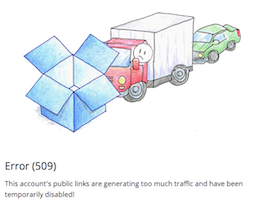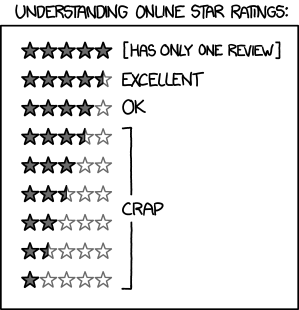You have probably noticed that we’ve had some problems here with the podcast and software downloads. Hitting any download-related links brings you to a lovely Dropbox 509 error page. I wanted to explain what was going on.
Take a great inside look at what it took took to start Tumblr – recently purchased by Yahoo!.
Andrew Chen writes today on his blog (or is it an essay?) about RSS and more specifically how he found the light with email subscriptions over RSS. RSS is a syndicator of content. RSS is a standard.
An interesting article on the beautifully laid out Upstreamist talks about the influx of advertising into a part of the web that has classically been untouched by ads: the comment section.
It is so incredible how far blogging has come since the early days. Back then, it was only possible by hobbling together HTML code and placing it on your web server. Now, what’s possible is truly amazing, easy and in many ways it let’s you focus on the task of writing – not the technical details behind the writing (well, for the most part anyway). A new blogging platform called Throwww aims to be an even simpler way of blogging.
You might have come here once or twice to see reviews of various hardware devices or software applications. But, one thing you may have noticed is that there aren’t star ratings attached to the reviews you see here. Why’s that? Well, let me explain.
Making something coherent and readable takes a certain command of the language as well as having some sort of story to tell. This might have always existed, but I seeing more and more a rise in articles, posts and other online information written in a language that is english, but not quite completely english. From that, there is also the backlash that tends to arise – some of it downright nasty. I’m sure you’ve seen them too, the articles that look like they might be useful, but ultimately fail a substance test.
Across the web, this story was picked up and amplified, yet a basic Google search of the source company turned up zero information on the survey itself. Was this stuff hidden to the general public? Was anyone going to actually cite the source? How many reporting blogs appear to have read this survey?
The what, why and huh? of this blog as you know it today.
Since I’m reading blogs at a near constant basis, I was pretty surprised that I hadn’t heard of BlogSPAM. Amazed, I took to the Internet to really understand what this was because I think it described one the most annoying things that happens as a reader. The bigger issue with BlogSPAM is the idea of Attribution. How are we best to call out our sources and inspiration while ensuring the practice is not a slimy attempt at gaining hits? Let’s take a closer look.









